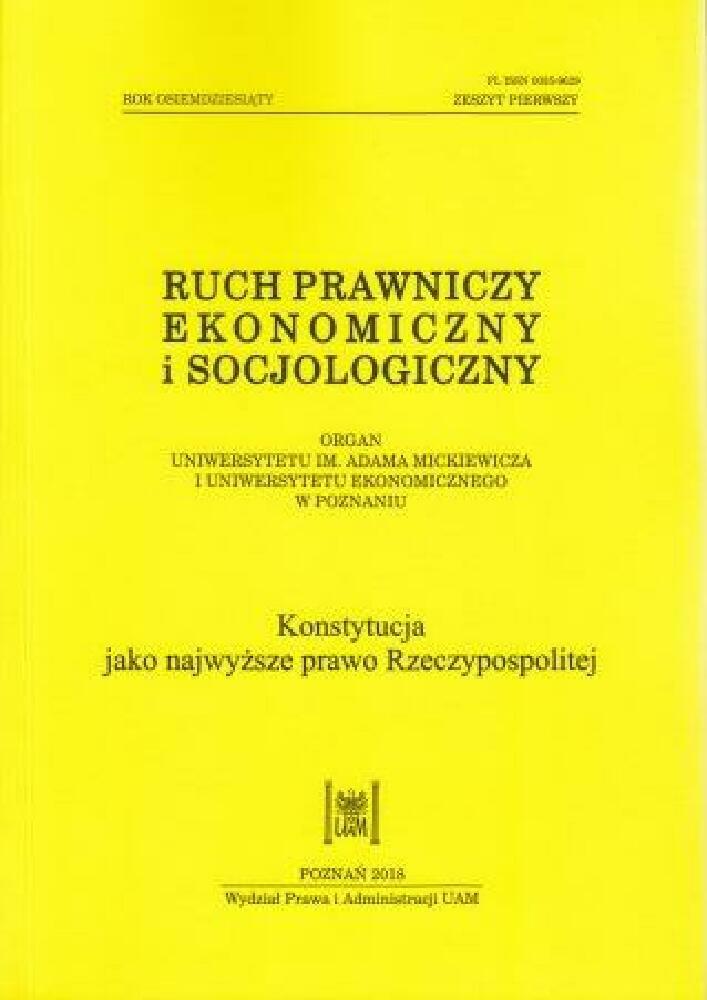Abstract
The aim of this article is to propose a methodology for research into the constitutional principle of the common good (Article 1 of the Polish Constitution). The author takes the view that the basic condition for the recognition of a state as a common good is to ensure that the rights, freedoms and duties of an individual are shaped in such a way as to ensure that the individual’s constitutional rights can be exercised. The laws that constitute the essence of the institutions of the freedom and rights within the concept of the common good include: human dignity, equality in law, the principle of social justice, the principle of social solidarity, the right to a trial. The minimum requirements for authorities to pursue the common good are that public institutions act efficiently and fairly in the interest of society. Common good is a derivative of the concept of state regarding both, the concept of freedom and individual rights, and the organisational side of thestate. On the constitutional level, the common good is not reduced to the issue of the limitation of individual freedoms and rights as compared to the public (State) interest. This issue should also be noted at the political level, the State’s constitutional order, whether accepted or not by the citizens.
The concept of the common good is not only associated with the citizen’s duties towards the state, but also with the state’s duties towards the citizen. The closest context in which Article 1 of the Constitution should be read is Article 2 of the Constitution (the principle of a democratic state governed by law), since the two, taken together, define the Republic of Poland as a state.
License
Copyright (c) 2018 WPiA UAM

This work is licensed under a Creative Commons Attribution-NonCommercial-NoDerivatives 4.0 International License.




